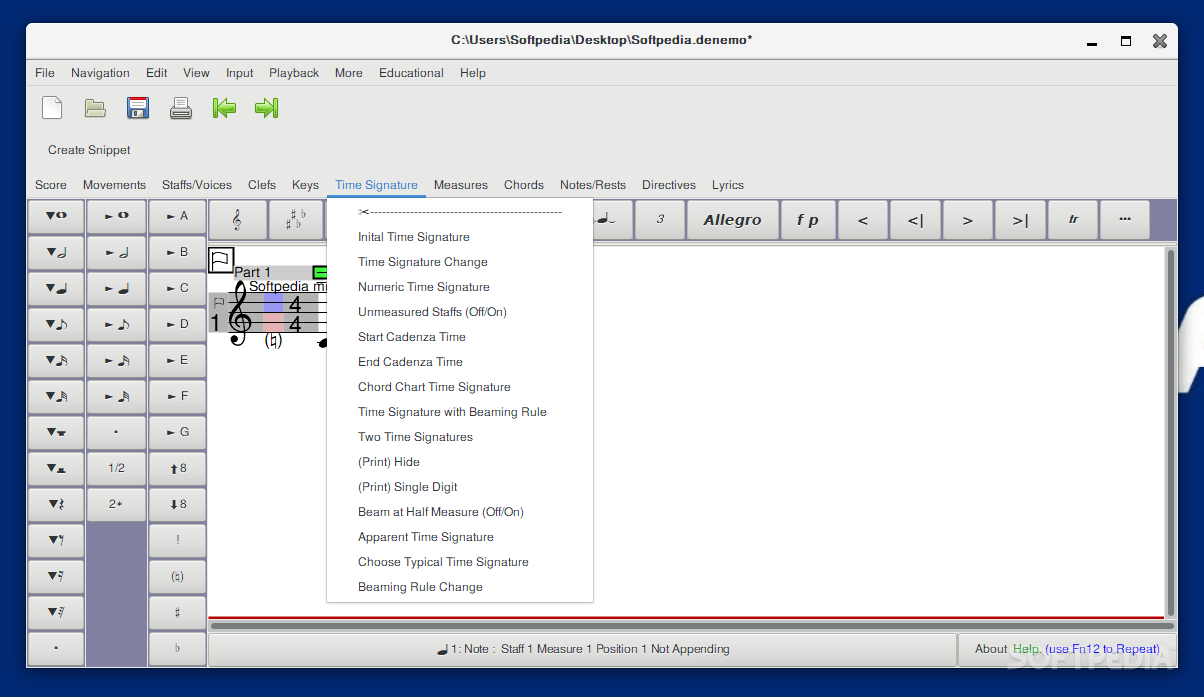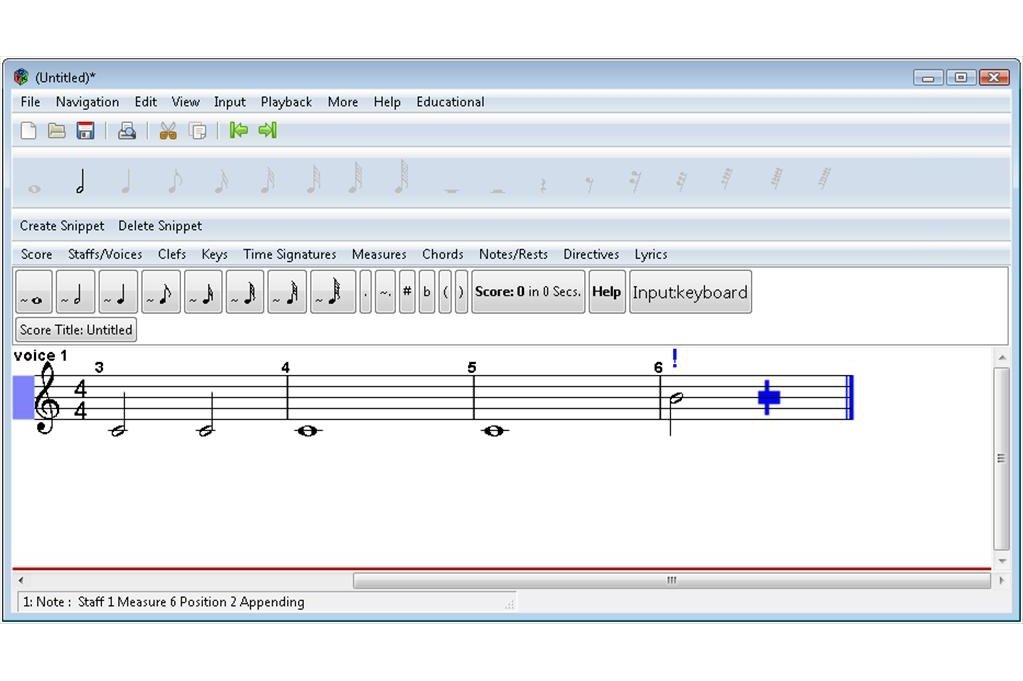

It compiles every commit on our repository with several compilators, run some tests and tell us if it was successful. We use Travis as our continuous integration service. You can test a single test by running: gtester -p=/the/test/path the-test-binaryįor example (from the tests directory): gtester -p=/integration/run-and-quit integration Continuous integration It uses GLib testing framework to launch tests. If you just want to run the testsuite: make -C tests check You can check everything (testsuite, packaging process etc.) by running: make distcheck configure -help Test suiteĪt each commit and before you send a patch, the program should be tested. Note that you can adapt the build to your configuration with some.
#DENEMO FORUM INSTALL#

If guile-1.8-dev is not available then you can replace that with guile-2.0-dev or guile-3.0-dev instead. deb systems you can run as root: apt-get install guile-1.8-dev libaubio-dev portaudio19-dev libfftw3-dev libgtk-3-dev libxml2-dev automake libtool libgtksourceview-3.0-dev libfluidsynth-dev autoconf libsmf-dev autopoint librsvg2-dev libportmidi-dev libsndfile1-dev libatrilview-dev libatrildocument-dev librsvg2-dev librubberband-dev intltool gtk-doc-tools

Unfortunately it is japanese app store only at the moment.Īs an aside, I got into computing by having access to a great music teacher, a 128k+ spectrum and a borrowed from school casio CZ-101. Whilst there are some examples for education, they seem more along the lines of a teacher scoring for students than for student learning.Ī much more useful app would be something along the lines of the iphone app Gakufu released by Kawai this week which allows you to use a camera to grab an image from printed or handwritten notation. The primary benefit from reading the site would be for university level composition courses, and sheet music engraving printers. I think lilypond is too advanced for little benefit, it's for writing a score, or appears more particularly for writing classical scores. i.e it is very much like programming but with a very specific intended outcome.
#DENEMO FORUM PDF#
It's GNU (& hence free) and makes use of of text-based input that is then compiled to produce pdf sheet music. If it could come with onboard General MIDI sound files/synthesis that would be fantastic.īut a while ago I did some messing with a music engraving app called Lilypond. There are a few ways this device could be used for producing music - using a linux based sequencer for example,Īn output from a sequencer to the current incarnation of MIDI would be highly useful. Quote from Mark Hudson on August 3, 2011, 09:54

maybe think about how a few lessons might be actually delivered.
#DENEMO FORUM HOW TO#
I just wonder if there is any scope to help develop an understanding of music notation by learning how to program it in this way - maybe as a joint project between the IT & Music depts.? The Lilypond syntax is quite easy to understand, so although very 'specialist' may have enough similarity to programming to perhaps make it a good introduction to some concepts?Īlthough take up in schools by music teachers might be a bit limited ( ) if there were any IT/Computing staff who were hobby musicians, they might find it interesting to try out?Īs it's free, the R.Pi might be a good platform to use it? I will give this some more thought.
#DENEMO FORUM SOFTWARE#
Getting students using notation software is incredibly difficult as it requires specialist understanding of how to read/use music notation and then the software itself is usually very expensive. is the main website but there is a very recent (July 2011) site that has an online environment There are a few ways this device could be used for producing music - using a linux based sequencer for example, but a while ago I did some messing with a music engraving app called Lilypond.


 0 kommentar(er)
0 kommentar(er)
